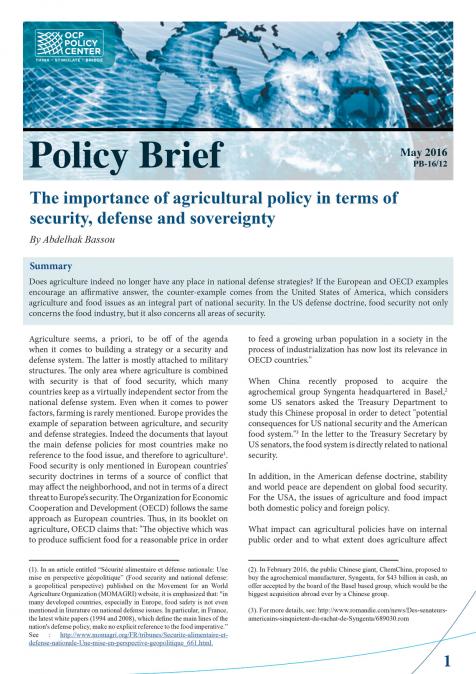Publications /
Policy Brief
Addressing the increasing demands for water, energy, and food requires a coherent methodology to ensure that societies have access to them and that conflict over them is avoided. For example, agriculture and food production require water and energy; energy production also requires water and, in some instances, agricultural products. Water distribution and treatment can be very energy intensive. Therefore, the benefits of approaching the Water- Energy-Food (WEF) nexus in an integrated way are gaining popularity. The public sector, the private sector, civil society, combined with the geopolitical and socio-economic-climatic environment are all interactors that form a complex web in the management of these fundamental resources. The MENA region relies heavily on international trade to ensure national food and nutrition securities and, with world crises and changing global landscapes, this has created a concern among nations as to whether it is sustainable or focusing on creating greater food self- sufficiency is a better alternative. This policy brief illustrates the use of computer decision support systems (DSS) to aid in the understanding of the WEF nexus with a particular focus on evaluating food production for trade or for self-sufficiency











